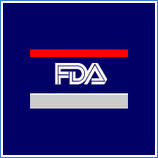
If you are on a gluten-restricted diet, shopping will be a whole lot easier pretty soon. For years, the term “Gluten-Free” was not regulated, giving manufacturers the ability to make their own decisions about what the term meant and when to place it on their products.

If you are on a gluten-restricted diet, shopping will be a whole lot easier pretty soon. For years, the term “Gluten-Free” was not regulated, giving manufacturers the ability to make their own decisions about what the term meant and when to place it on their products.
Under a new rule from the U.S. Food and Drug Administration, in order to be labeled “Gluten-Free”, a food or beverage must contain fewer than 20 parts per million (20ppm) of gluten. This translates to approximately two-hundredths of a gram of gluten per kilogram (2.2 pounds) of food.
Gluten is found in grains such as wheat, barley and rye, and a gluten-free diet is used to treat celiac disease, a condition causing severe inflammation of the small intestines. Some experts worry that even 20 parts per million of gluten could be dangerous to those with very extreme cases of celiac disease. But FDA officials claim that only a very small number of individuals with celiac disease will not be able to ingest foods under the new regulations.
“Adherence to a gluten-free diet is the key to treating celiac disease, which can be very disruptive to everyday life,” said FDA Commissioner Margaret A. Hamburg, M.D. “The FDA’s new ‘gluten-free’ definition will help people with this condition make food choices with confidence and allow them to better manage their health.”
But don’t fill your shopping cart with G-Free foods just yet! The FDA realizes that many foods currently labeled “gluten-free” are already in compliance with the new rule, but the Administration is allowing manufacturers a full year to bring their foods up to code. The new regulation will also require foods with the claims “no gluten,” “free of gluten,” and “without gluten” to meet the definition for “gluten-free.”
“We encourage the food industry to come into compliance with the new definition as soon as possible and help us make it as easy as possible for people with celiac disease to identify foods that meet the federal definition of ‘gluten-free’” said Michael R. Taylor, the FDA’s deputy commissioner for foods and veterinary medicine in a press release.
The new FDA standard also applies to dietary supplements. Wheat-derived fillers and coatings are often used in pills. So, the FDA regulation should help those with celiac disease weed through the many options in the vitamin aisle more easily.
It is important to note that alcoholic beverages do not fall under the FDA’s regulatory authority and, therefore, do not have to meet the requirements for it’s new gluten-free labeling standards.
Alcohol can be a complicated area for many with celiac disease, as everything from beer to bourbon is made with wheat, rye or barley. Great debate surrounds the idea that distilled spirits may be safe for those with celiac disease because the distillation process separates all traces of gluten from the alcohol. But be careful. Additives like flavors or colors may contain gluten.






